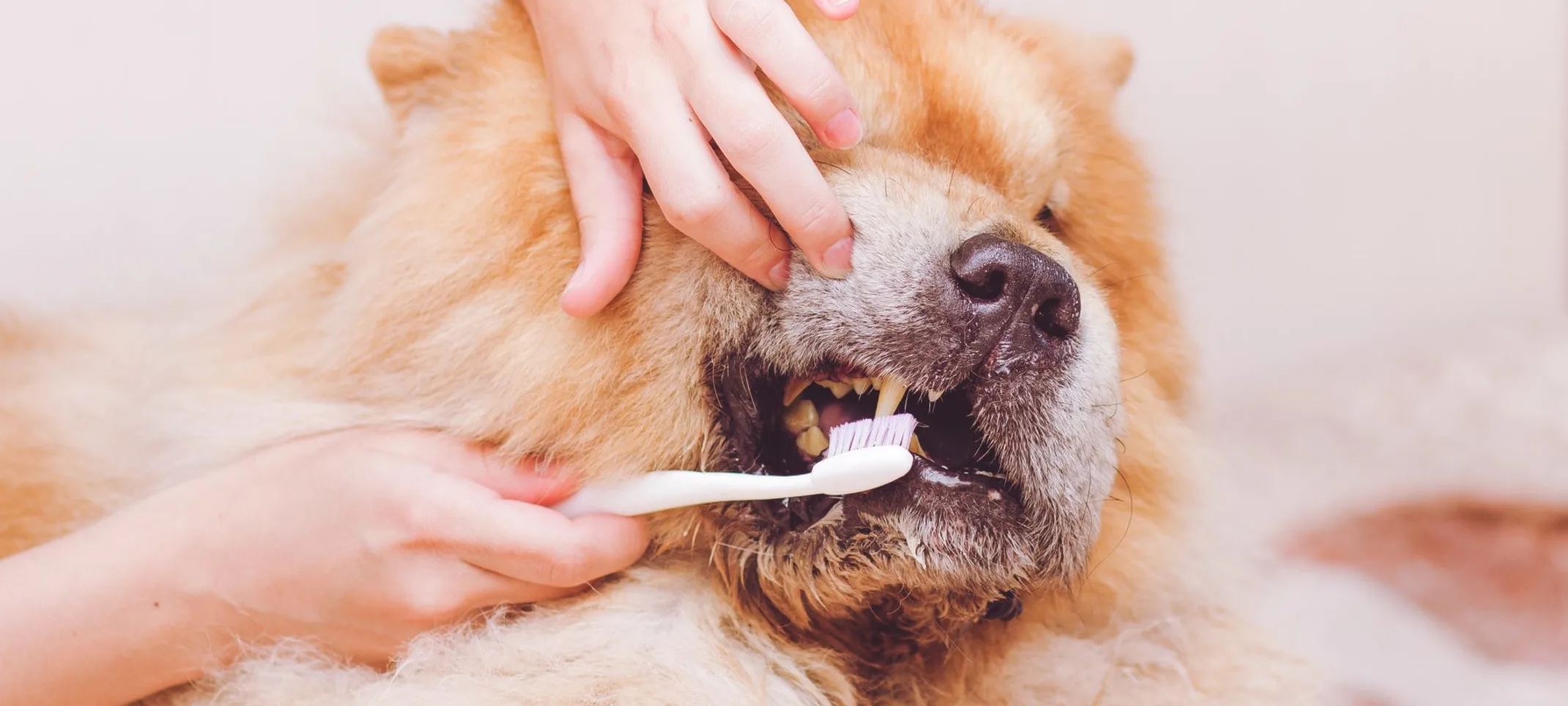A&B Animal Clinic
Dentistry
Annual dental exams and cleanings are recommended to protect your pet from many health problems and help them maintain a healthy and clean mouth.

Pet Dentistry in Dallas
Happy Pets Have Healthy Smiles
When thinking about your pet’s health, do you remember to think about their teeth? Oral health is an important part of your pet’s overall wellbeing, but is often neglected by even the most thoughtful of pet parents. At A&B Animal Clinic, we make sure your pet’s mouth is treated with the same care and attention we devote to the rest of their body.
Overview
Studies show that 50% of all dogs and cats have some form of periodontal disease. That number jumps to 80% in pets that are 3 years of age or older. If left untreated, periodontal disease can cause infection, pain, and tooth loss over time. It can also lead to serious health problems like microscopic changes in the heart, liver, and kidneys. Because of this, we recommend an annual veterinary dental healthcare examination for all pets.
Why do pets need dental care?
Many health problems start in the mouth. Plaque, tartar, periodontal disease, and infected teeth serve as a source of inflammation and infection for the rest of the body.
Dental disease is one of the most common problems that we see in dogs and cats. It can cause drooling, reluctance to eat, swelling, bad breath, redness of the gums, loose teeth and tooth discoloration.
Dental Health & Periodontal Disease
If your pet has smelly breath, don’t dismiss it. Because “dog breath” is a ubiquitous idiom, pet owners will just assume that it’s a fact of life, but it could be a sign that there’s a problem with their oral health. Bad breath is a symptom of periodontal disease, which is considered the most common disease in cats and dogs. At A&B Animal Clinic, we can help you figure out if it’s something more to worry about.
Does your pet exhibit any of the following symptoms?
Bad breath
Blood in saliva or water dish
Difficulty eating
Drooling
Loose teeth
If you answered yes to one or more of the above, it’s possible your pet is suffering from periodontal disease.
Periodontal disease occurs from an excessive buildup of plaque on the teeth. When the plaque dies, it hardens on the teeth. Regular brushing can dislodge plaque, especially in the early stages of buildup. However, if plaque is left on the teeth, it continues to build up, creating more space for more plaque. If this buildup moves below the gumline, it can lead to an infection of the gums and damage to the tissues that hold the teeth in place. Without treatment, this can cause permanent damage to your pet’s mouth.
Dental Cleanings at A&B Animal Clinic in Dallas
In order to get rid of the buildup of plaque on your pet’s teeth, our Dallas veterinarians may recommend a professional dental cleaning. Dental cleanings for pets involve general anesthesia. As an American Animal Hospital Association (AAHA) accredited animal hospital, A&B Animal Clinic is fully equipped to keep your pet safe and monitored throughout the cleaning process.
During the cleaning, a veterinarian will scale and polish your pet’s teeth to get rid of all the plaque buildup. Once your pet’s teeth are clean, we will apply an anti-plaque treatment to your pet’s teeth to help protect them from future plaque buildup.
Before we send your pet home, our we will help you learn how to care for your pet’s teeth at home. Preventative dental care and maintenance is a great way to keep your pet healthy and smiling for years to come!
When should I seek dental care for my pet?
Dental issues and dental related diseases can easily be prevented by visiting our veterinarians regularly for dental examinations and cleanings. We take a comprehensive approach to dental care including dental health assessment, treatment, and prevention.
How does it work?
Teeth Exams, Cleaning and Polishing
Dog and cat dental cleanings are very similar to human dental cleanings, except that we are required to use anesthesia to properly and safely examine and clean the teeth. After the cleaning, our veterinarians perform a thorough oral exam and check for signs of disease like gum loss, root exposure, or pockets around the root.
Also similar to human dentistry, we do full mouth radiographs (x-rays) of your pet. This allows our veterinarians to be able to evaluate the roots of your pet's teeth as well as any disease or abnormalities that are located below the gum line and not visible on examination alone.
Tooth Extractions
We make every effort to save teeth that we feel have a chance to be successfully treated. In many circumstances, however, periodontal disease is so advanced that treatment without extraction is unsuccessful. We only extract teeth that in the doctor's opinion are beyond saving.
Minor Oral Surgery
Many teeth require oral surgery to safely remove each individual root. We have extensive training and experience to perform these procedures properly. Pain medications are administered in clinic and provided for in-home aftercare.

